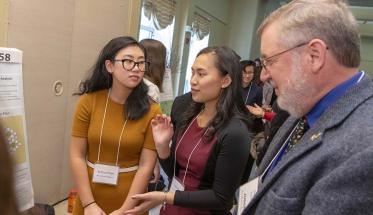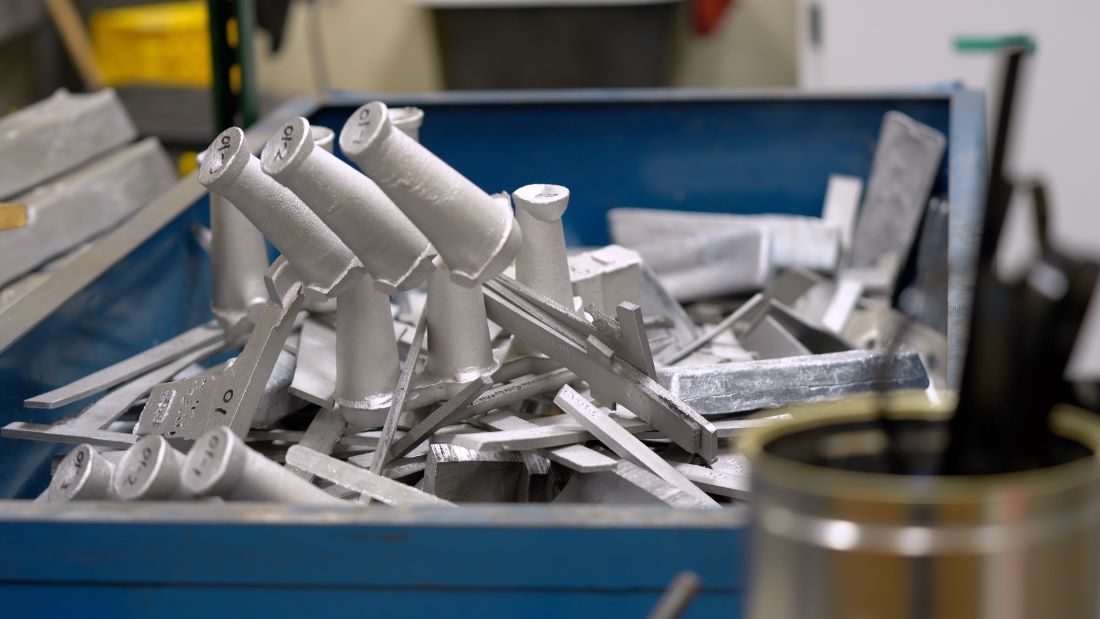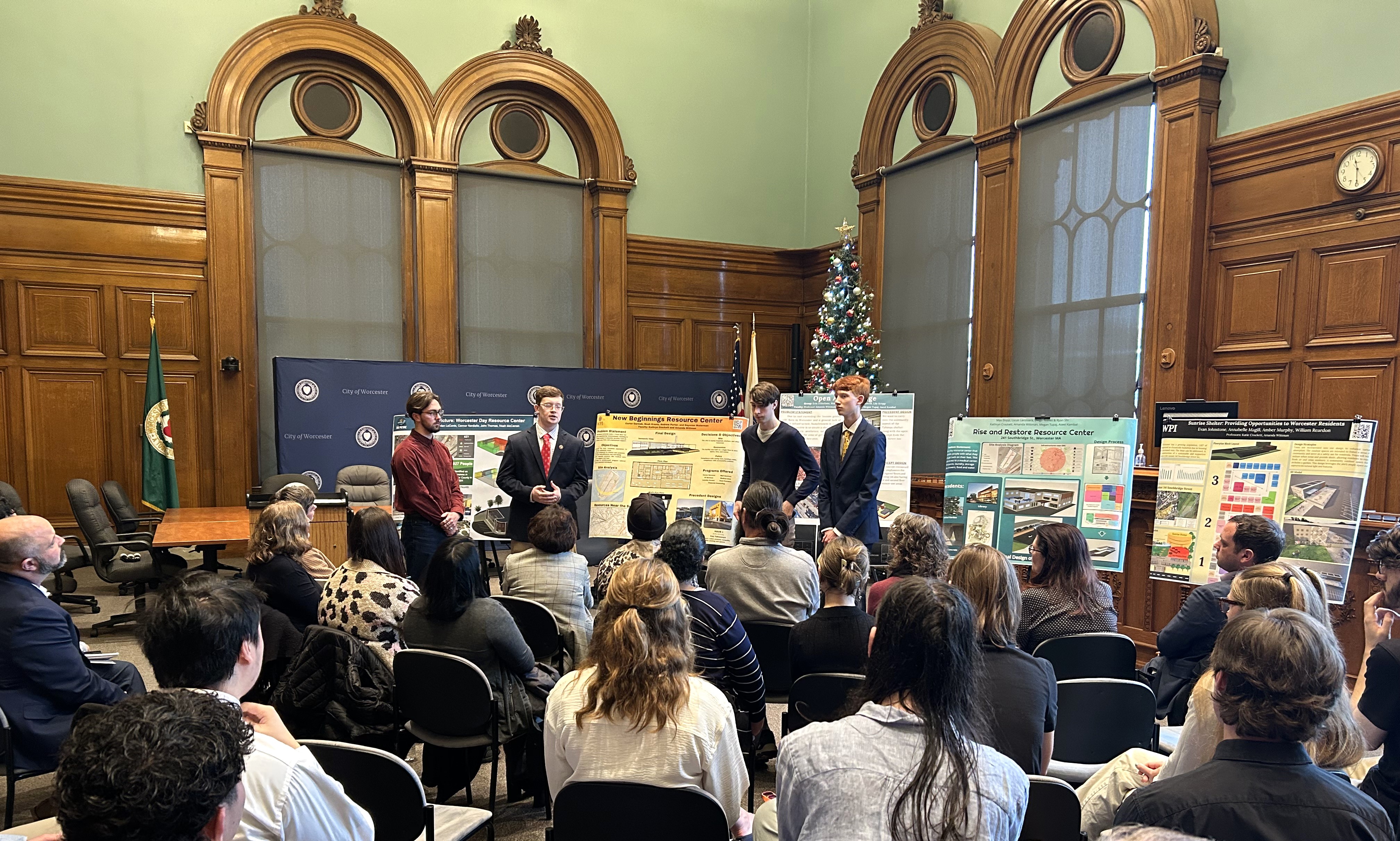Break out the caffeine—for more than 250 first-year students, last week didn’t just include final exams, it also featured the culmination of their Great Problems Seminar (GPS), an optional two-term course that introduced them to university-level research and WPI’s project-based curriculum. Students showcased their work to faculty, staff, peers, parents, and alumni during the 12th annual GPS Poster Presentation Day on Dec. 11.
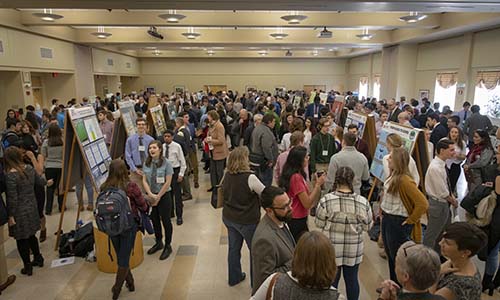
The Odeum was buzzing with activity as students presented their work to faculty, staff, friends, and guests.
This year also saw the first time GPS courses were held in the new Foisie Innovation Studio, which features high-tech, active learning classrooms designed specifically with GPS in mind. Associate dean of undergraduate studies Kris Wobbe says the multiple screens and white boards in the classrooms were instrumental in facilitating student presentations, a key part of the first-year class.
“Having all the GPS classes in the same room also allowed the GPS faculty opportunities to cross paths and share ideas—always a good thing,” Wobbe adds.
Student groups had the option of focusing their projects in one of seven general topics: Extinction: Who Will Survive; Feed the World; Heal the World; Livable Cities; Recover, Reuse, Recycle; Shelter the World; and The World’s Water. From there, though, the specifics were up to them, allowing for the groups to dig deep into true passion projects ranging from reducing the stigma of PTSD in the military to conserving oceanic reefs.
“It was really helpful to get exposure to large-scale projects as a first-year student while working with a group on a topic that’s important to me,” says Lillian Taylor, who completed her project, Students Combatting Shark Misconceptions, with William Cross, Kathleen Duffy, and Caroline Jaeger after the team realized they all had a shared interest in the connection between the negative misconceptions of sharks and their endangerment.
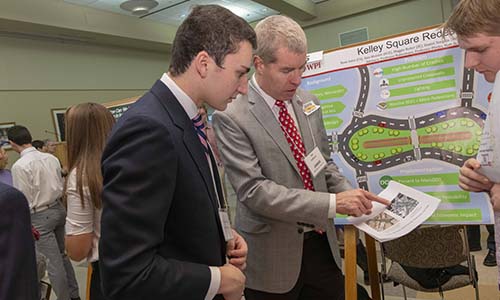
Professor Neil Heffernan, who also acted as a judge for GPS, discusses a project with students.
Having been torn between two different topics, Megan Ouellette, Sarah Piela, and Matthew Maloney ultimately focused on creating a solution to improving access to and the stigma surrounding feminine hygiene in rural India through their project, Feminine Hygiene in Rural Tamil Nadu, India. A Basic Human Right. Period.
“It’s been a great way to prepare for IQP and MQP, find a problem that’s relevant, and work toward a solution that’s viable and can be used in the real world,” says Maloney.
“It’s not just learning to trust in your own academic abilities, but also in your partners,” adds Piela. “In the past 14 weeks, I’ve learned how to effectively communicate my ideas, but also respect the context and viewpoint of others, and learn how to harmonize those two assets to create something that’s meaningful.” She gestures to the team’s poster and adds with a smile, “Seeing it all come together, it’s almost a proud parent moment. It’s like our child.”
This year’s winners are . . .
Extinction: Who Will Survive – The Karner Blue Butterfly: Best Management Practices, Emma Fountain, Mickaela Gunnison, Anxhelo Ripa, Antoine Rodriguez
Feed the World – The Lean, Mean, Microgreen Machine, Katherine Doucette, Tim McCarthy, Nathan Morin, Peter Nikopoulos
Heal the World – An App to Improve the Mental Health of Breast Cancer Patients, Kylie Belanger, Corinne Saucier, Laura Staugler
Livable Cities – Kelley Square Redesign, Ryan Astor, Alex Mondro, Maggie Reiter, Daniel Tengdin, Tony Tesoriero
Recover, Reuse, Recycle – Waste to Wealth: Utilizing Waste Plastics and Copper Slag to Produce Value-Added Materials, Katherine Bishop, Victoria Carreiro, Madison Rutherford, Yoni Weiner
Shelter the World – Storm Resistant Affordable Housing in Agra, India, James Englander, Troy Otter, Erin Thibeault, Joshua Thomas
The World’s Water – Education & Filtration of Arsenic Contaminated Drinking Water in Nawalparasi, Nepal, Isabel Alvarado Blanco Uribe, Leslie Mateo, Paul Pacheco, Matthew Plympton
People’s Choice – (Heal the World), An App to Improve the Mental Health of Breast Cancer Patients, Kylie Belanger, Corinne Saucier, Laura Staugler
- By Allison Racicot
